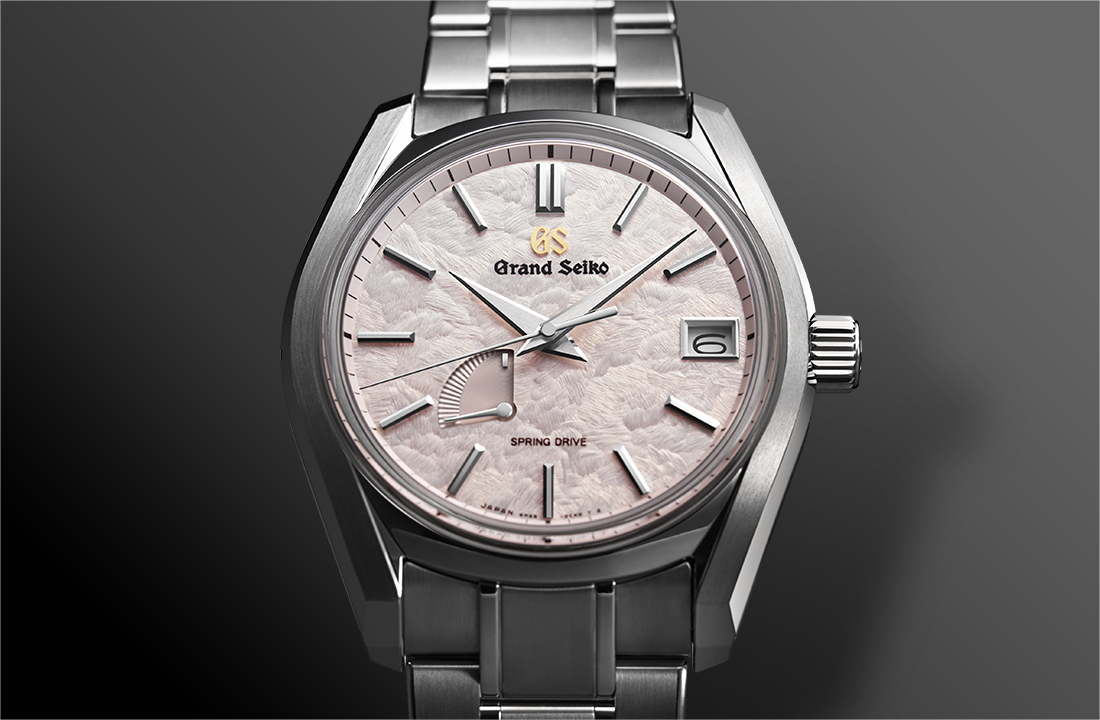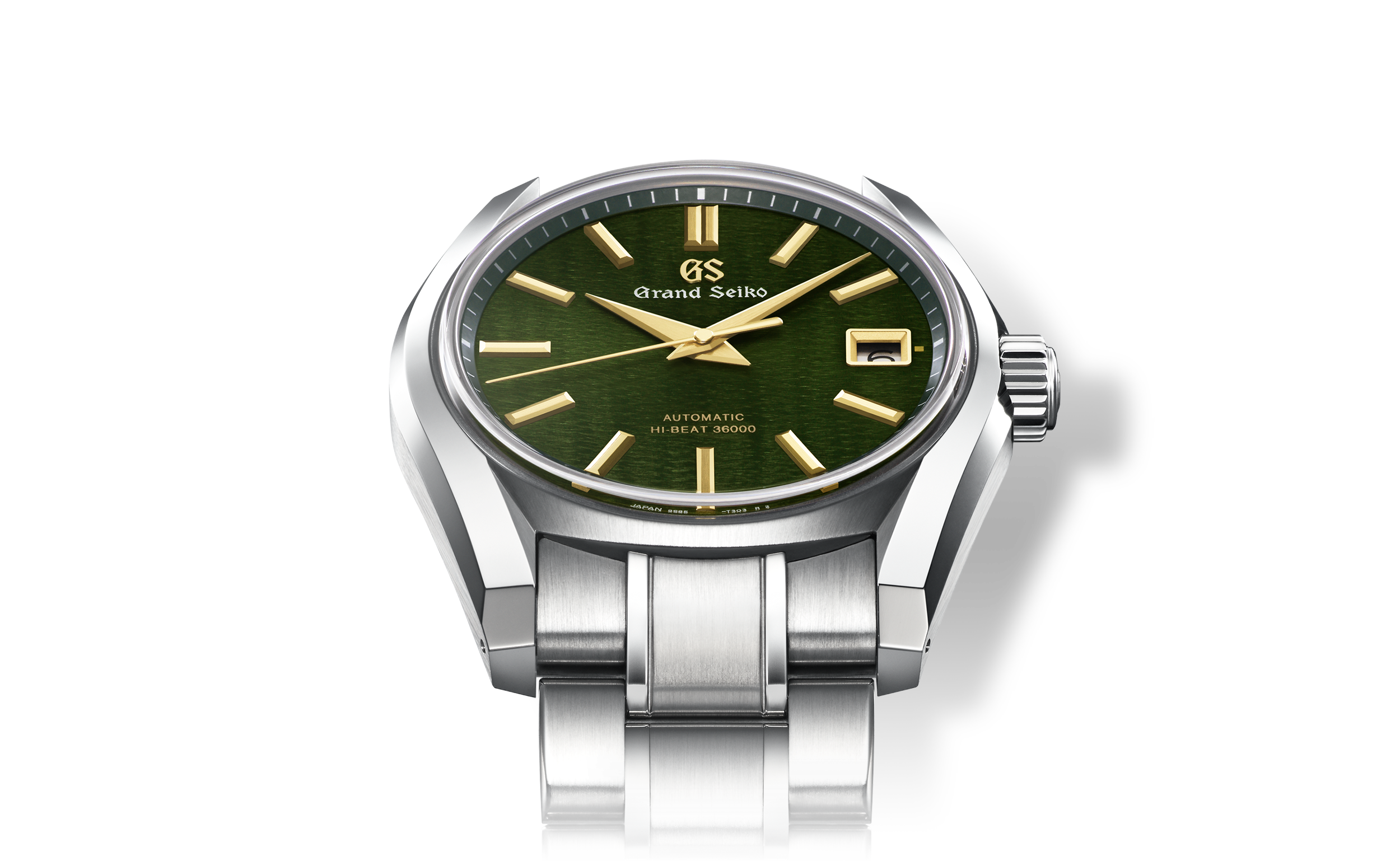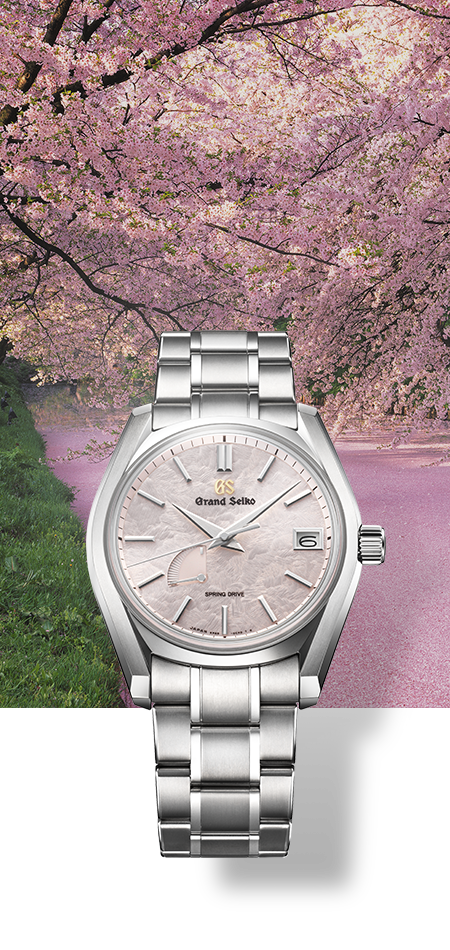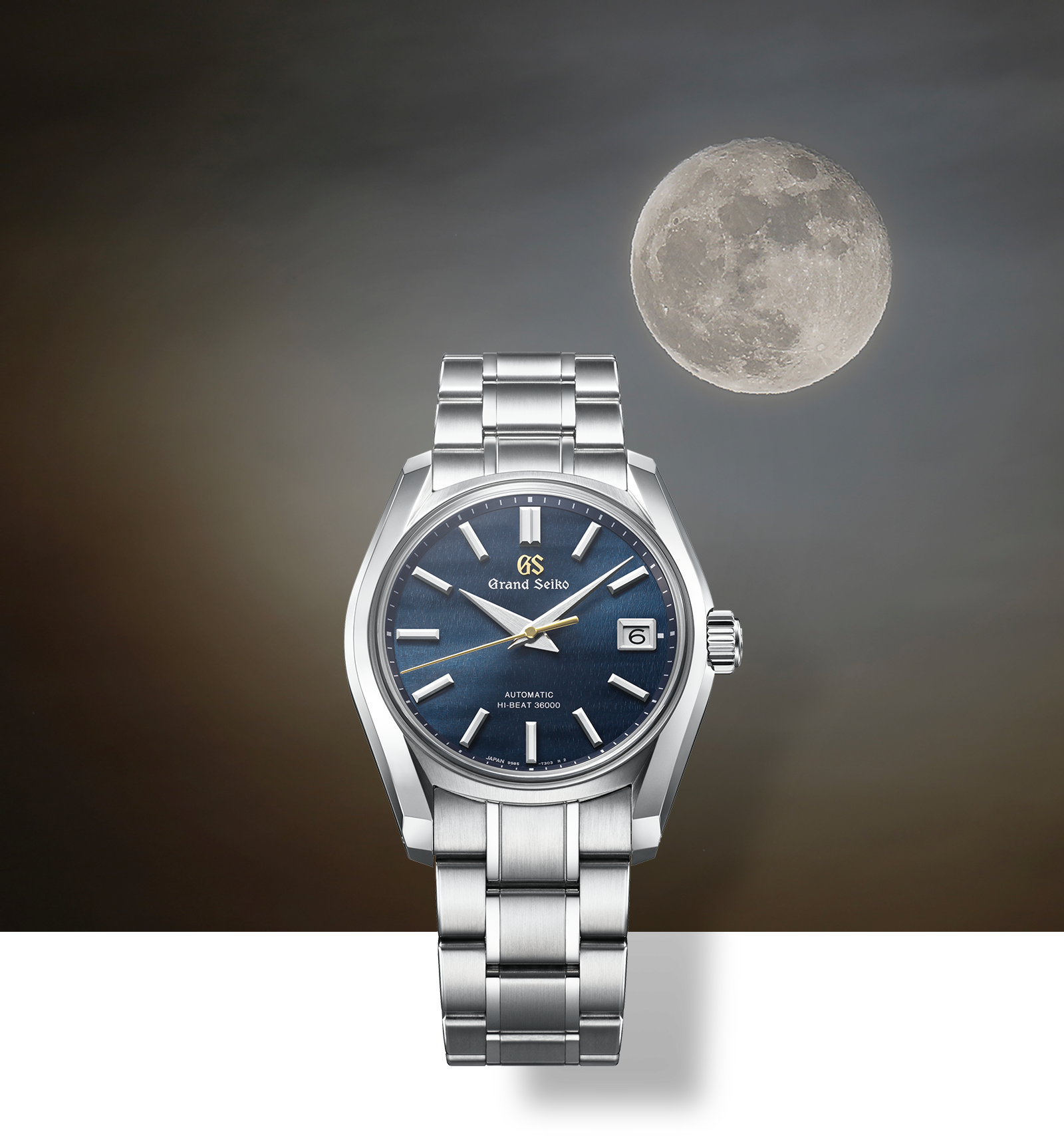Grand Seiko Heritage CollectionJapan Seasons Special Edition
CONCEPT
Unveiling its deep sensibilities and a reverence for the Japanese passage of time, Grand Seiko has reimagined the iconic 62GS design with four new timepieces for its Heritage Collection.
The new watches celebrate The Nature of Time and commemorate Japan’s twenty-four sekki that mark nature’s ever-changing seasons. The sekki offer a poetic journey as nature awakens, blossoms, matures and settles into slumber from the beginning of spring, known as risshun, to the glistening cold of winter known as daikan.
DESIGN

Launched in 1967, the 62GS was Grand Seiko’s first automatic movement. This timepiece gained popularity for its striking design featuring a mirrored, multi-sided case and wide dial opening, which was achieved with bezel-free construction and Seiko’s signature Zaratsu polishing technique. Pure, refined, and noble, the 62GS is a treasured classic.
MOVEMENT
The four models feature two characteristic Grand Seiko movements,
each is hand adjusted and assembled by hand by highly skilled craftspeople.

Spring and Winter are assembled at the Shinshu Watch Studio. The 9R65 caliber uses sophisticated modern technology coupled with the skilled hand of a master craftsman for the finest adjustments and highest precision possible, highlighting the seamless passage of time with a Spring Drive movement.

Summer and Autumn are assembled at the Shizukuishi Studio.
The 9S85 caliber uses sophisticated modern technology applying innovations to the precision controlling mainspring, the hairspring, and the escapement. Together the movement showcases the pure power and dynamism of the Mechanical Hi-Beat 36,000.
SPRINGSHUNBUN The Vernal Equinox




When sakura blossoms fall into water, they swirl and float. The pink blossoms dance on the water, and the Japanese call them flower rafts, hanaikada. The pink dial of this model captures the spirit of the fleeting sakura season.
Starting with the beginning of spring (Risshun), the first of the lunar year, the season comes to life when the snow gives way to rain (Usui), and creatures awaken from hibernation (Keichitsui). As day equals night (Shunbun), the pure sky and renewal of nature come into existence (Seimei).
SUMMERRIKKA Early Summer




As spring passes to summer, the land turns lush and green. A refreshing summer zephyr blows over waving fields and grass. This refreshing zephyr in Japanese is kunpu. This model’s rich, green dial seizes a summer moment to enjoy forever.
It is during this season that rice is sowed (Boshu) and when the night is shortest (Geshi). As the intensity of heat raises (Shosho), summer ends with the hottest day of the year (Taisho).
AUTUMNSHUBUN The Autumnal Equinox




Under the moonlight, the night is quiet except for the last of the chirping crickets. The bright moon against the dark sky in Japanese is known as tsukiyo. The dial of this model is a dark blue to celebrate the autumnal equinox and represent the autumn clouds as they float through the sky.
Opening with the beginning of fall (Risshu), the period when temperatures fall (Shosho), and awaken to the morning dew (Hakuro). It is this season that day equals night (Shubun), and the frost appears in the morning (Kanro). Fall enters hibernation upon the first frost (Soko).
WINTERTAISETSU The Deep Snow of Winter




Pine trees crusted with snow, silent under the sun of winter. It’s when the world has settled into a slumber only to awaken in the spring. This model’s dial celebrates the winter snow as it gathers and glitters against the sunlight.
As nature slows down the beginning of winter (Ritto), flurries of snow (Koyuki) begin before the heavy snow (Taisetsu). This season welcomes the shortest day of the year (Toji), as days become cold (Shokan), and life experiences the coldest day of the year (Daikan).
Grand Seiko Heritage Collection
Japan Seasons Special Edition


Shunbun
SBGA413
[ Caliber 9R65 ]
USD 6,300
Available now in USA


Rikka
SBGH271
[ Caliber 9S85 ]
USD 6,300
Available now in USA


Shubun
SBGH273
[ Caliber 9S85 ]
USD 6,300
Available now in USA


Taisetsu
SBGA415
[ Caliber 9R65 ]
USD 6,300
Available now in USA







